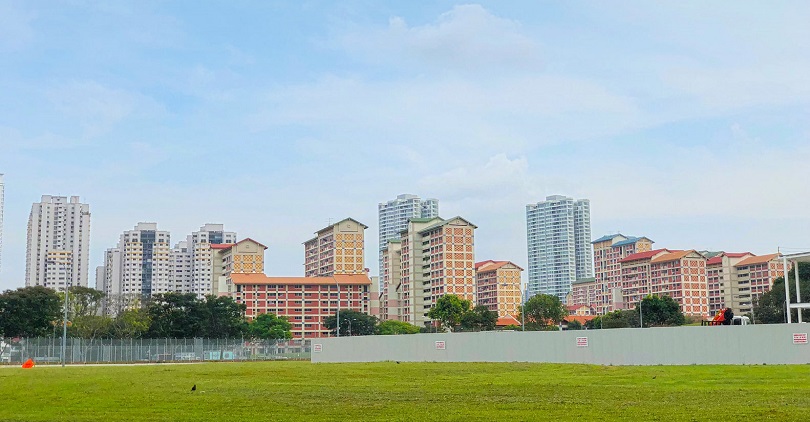
Lee explained that the EIP remains “critical, because so much of our lives, and our children’s lives, revolve around our homes and our neighbourhoods”.
Minister for National Development Desmond Lee believes the Ethnic Integration Policy (EIP) is still necessary to combat racism and build racial harmony since it ensures “inclusive and diverse neighbourhoods”, reported Channel News Asia (CNA).
“The EIP remains an important part of this effort. Left entirely to social and market forces, ethnic concentrations will start forming in different areas again,” said Lee in Parliament on Monday (5 July).
Lee made the statement in response to Members of Parliament Chong Kee Hiong (PAP-Bishan-Toa Payoh) and Cheryl Chan’s (PAP-East Coast) query on the relevance and necessity of EIP in today’s context.
In his speech, he noted that there might be “ethnic concentrations” in Singapore without the EIP.
“Just imagine how much more different ethnic groups would concentrate in different neighbourhoods if we did away with the EIP and how much harder it would then become to promote mixing and understanding across ethnic groups (at home),” he said as quoted by CNA.
Although living near someone of a different ethnic group, religion or culture does not guarantee understanding, Lee explained that the EIP remains “critical, because so much of our lives, and our children’s lives, revolve around our homes and our neighbourhoods”.
“If we don’t live with one another, it makes it much harder to empathise with other communities and understand the challenges they face, and much easier to stereotype or assume the worst of those who are different from us. This is a recipe for mutual mistrust and intolerance,” he said.
Nonetheless, he acknowledged that EIP is “an intrusive social policy”, with some “rough edges” including the inability of sellers from other ethnicities to sell to buyers from certain ethnic groups once the quota for such group within the neighbourhood has been reached.
“With a smaller pool of eligible buyers, sellers may have to lower their asking price or take longer to sell their flat,” said Lee.
With this, HDB has been exercising flexibility for EIP-constrained owners on a case-by-case basis. In fact, successful EIP-related appeals have increased to 21% last year from 14% in 2018.
“However, whenever HDB waives EIP limits to address its impact on certain households, it’s mindful that this may lead to even higher imbalances in the concentrations of certain ethnic groups in some areas,” he said.
But ultimately, the EIP has an “essential place” to promote and protect racial harmony, added Lee.
Meanwhile, Workers’ Party (WP) Secretary-General Pritam Singh asked whether HDB can exercise “greater flexibility” at the neighbourhood level to relax the EIP criteria as a compromise or remove block and precinct quotas to help ethnic groups affected by the policy.
In response, Lee cited WP’s manifesto, which he said “unequivocally” provides that people should be able to live wherever they want by scrapping the EIP since racial harmony within the city-state would not be affected following over 50 years of nation-building.
“We take a very different view to (the WP),” said Lee, noting incidents that remind Singaporeans to continue working at racial harmony.
“Never rest on our laurels that we can afford to take away mechanisms that are in place through the wisdom of the generations to keep our society where it is today.”
He reiterated that HDB acts in a “very judicious” manner when looking at appeals for waiver of EIP limits, otherwise “the lessons that we learnt will all unravel”.
Singh, on the other hand, noted that his call for EIP review is “undergirded by the frustration of ethnic minorities who cannot sell their flats”.
“Is the EIP the only policy among a whole gamut of policies that the Government has to encourage racial integration?” he said as quoted by CNA.
“It has to be revisited in the context of, and not limited to, a larger national conversation on race relations in Singapore today … and what it means to be Singaporean,” he added.
“The current policy, as it stands, has a larger impact on minorities, penalising them in the pocket when they have to sell their flat … This may perversely interact with the stated objective of the policy of racial harmony, thereby breeding resentment amongst those who are affected by the policy.”
Looking for a property in Singapore? Visit PropertyGuru’s Listings, Project Reviews and Guides.
Victor Kang, Digital Content Specialist at PropertyGuru, edited this story. To contact him about this story, email: victorkang@propertyguru.com.sg

